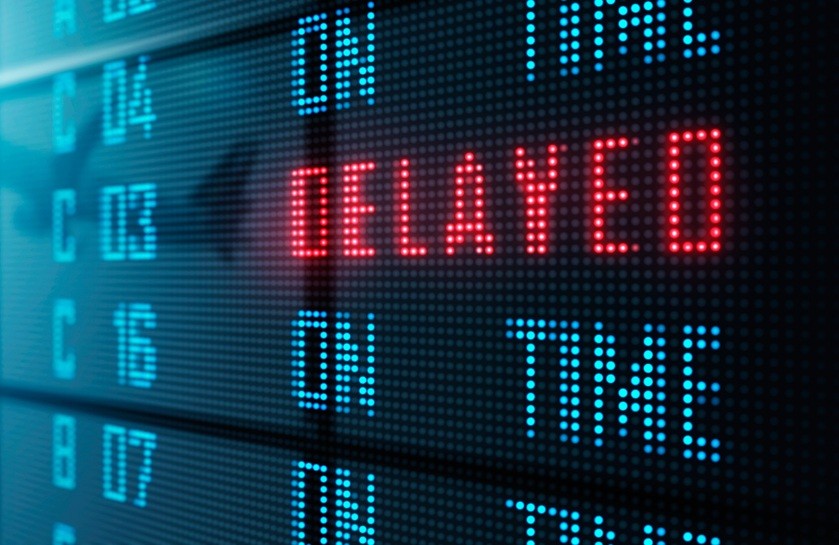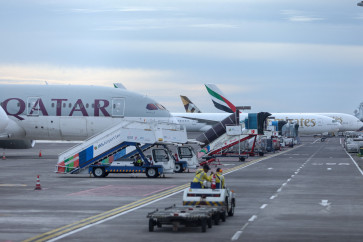Popular Reads
Top Results
Can't find what you're looking for?
View all search resultsPopular Reads
Top Results
Can't find what you're looking for?
View all search resultsWhat causes the flight delays that leave you stuck at airports?
Change text size
Gift Premium Articles
to Anyone
Travelers still struggle with the lack of information on delayed and cancelled flights, according to a new global survey.
A study conducted by aviation and data analytics company Cirium revealed that over a third of global travelers (36%) don’t get enough information on their flight status.
Cirium president and chief executive officer Christopher Flook said through the results of the survey, the company hopes to work closely with airlines on initiatives to reduce the impact of disrupted flights.
“While our survey reveals well over a third of passengers still have to pay more for alternative travel plans, airlines can proactively issue flight alerts ahead of travel and re-allocate tickets without fees to take the sting out of flight disruption,” he said.
The survey revealed nearly two thirds (57%) of those polled only found out about their flight delay or cancellation once they had reached the airport. When asked, 29% said they would prefer to be informed about a delay through a text alert with another two thirds (61%) saying they would use an app which would alert their friends, family or company about the delay.
More than a third of travelers worldwide (35%) who had experienced a delayed or cancelled flight, did not find it easy to change their travel plans, with 40% being forced to pay more to make alternative plans.
Last year, approximately 3.9 million flights – or 10,700 a day – were delayed by over 30 minutes or cancelled globally, affecting more than 470 million passenger journeys around the world.
Flight delays and cancellation cost airlines globally US$30 billion a year in lost revenue, in addition to costs borne by their passengers.
Read also: What to do when your flight is delayed
Airline flight delays and cancellations are caused by a wide range of factors, such as technical issues with aircraft, bad weather, air traffic control problems, strikes, medical diversions and congested airports, among many others.
Over a third of global travelers would be most sympathetic if a flight was disrupted due to bad weather (35%) followed by technical issues with their aircraft (30%). However, only a tiny 5% would be most sympathetic with delays or cancellations due to problems caused by air traffic control.
More than double (48%) said they would be most frustrated if their leisure flight was delayed or cancelled compared to the 21% who would be most frustrated if a business flight was cancelled.
The study polled 2,904 adults in Britain, 1,302 in the United States, 1,004 in China and 1,006 in the Middle East. The figures have been given an even weighting for each country to produce an average value.
This article appeared on The Star newspaper website, which is a member of Asia News Network and a media partner of The Jakarta Post







